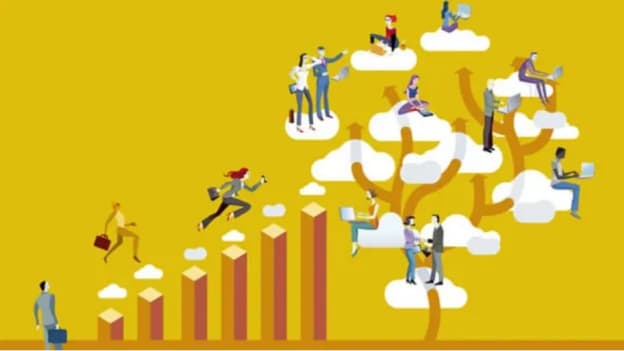With the workplace shifting to far more hybrid and remote arrangements, organisations need a common language that quickly familiarises employees with each other for the most effective collaboration.
This is where CliftonStrengths plays a crucial role. If employees know someone on their team has high Activator talents, they know that person will get a project started fast, and, on the other hand, teammates will understand why this person might act too quickly with limited information. If team members know someone is talented in the Deliberative theme, they will recognise this person’s thoughtfulness in resolving a customer issue rather than being annoyed by their slow, methodical behaviour.
Awareness of innate differences is nothing new for people. For thousands of years, humans have been aware of distinct traits among individuals with whom they work and live.
For example, within families, even personalities and other traits differ significantly. Ancient tribes were composed of people with widely varying innate tendencies -- some better at reaching out to make new friends, some with superior problem-solving skills, some with great command to lead, and others who excelled at getting things done. When put to use, these differences were an invaluable asset to the group’s survival, resiliency and longevity.
In short, diversity of strengths has long been an advantage for humans -- when we understand and apply them.
If someone had been documenting the successes and failures of communities over the last 10,000 years, we would have had an enormous database to make sense of all of this. Now we know:
- A team’s awareness of its strengths is a better indicator of engagement and performance than the specific composition of the strengths. Teams where 90% or more knew their strengths had the best outcomes. This comes from a recent study where Gallup analysts collected data from 11,441 teams across six industries. The teams varied from 0% of the team members knowing their strengths to 100% of team members knowing their strengths via CliftonStrengths. We also collected employee engagement and performance data from each team.
- Groups receiving strengths interventions achieved substantially higher sales, profit, customer engagement and employee engagement and lower turnover. This comes from a meta-analysis of 103 studies in 11 industries, 111 countries and across 20,021 teams.
The Benefits of a Strength-Based Organization
Gallup’s evidence makes a powerful case for building a strengths-based ororganisationThe aim of such an organisation is to create a customer-centric culture where individual differences are applied to make the overall organisation more productive.
Not only are strengths-based organizations more productive, but companies using strengths significantly increase the odds that employees and customers will be engaged and thriving.
Signs that you have a strengths-based culture:
- Individual employees strongly agree they have the opportunity to do what they do best every day.
- Team members can name and understand the strengths of everyone on the team.
- Team members can see the link between strengths and success such as improvement in competencies, performance and customer service.
- Everyone on the team has partnerships that encourage their own strengths development.
- Team members use their knowledge of each other’s strengths to plan and direct their actions.
- Managers use individual strengths to set meaningful goals and clarify expectations with each employee.
- Managers know how each team member’s strengths connect to their role.
- Teams are more agile in responding to customer needs.
- Very few organisations in the world can say their culture is “strengths-based.” This is a missed opportunity because organisations with strengths-based cultures greatly outperform their competitors by building much stronger relationships with customers.
But simply knowing one’s strengths is not enough. There needs to be conversations, coaching and practice to successfully integrate strengths into daily routines. This happens most effectively when your managers are upskilled and certified by Gallup to coach each team member to use their strengths.
What Organizations Can Do Now
How do you become a strengths-based organisation?
- Encourage every employee to discover their strengths. Strengths measurement provides teams with a common language to talk about how they can collaborate and perform effectively. Awareness is just the beginning -- a strengths-based measurement approach is designed primarily to improve constructive communication and development.
- Build an internal network of Gallup-Certified Strengths Coaches. Internal expert-level strengths coaches provide managers with practical insights and tools on an ongoing basis. They serve as consultants to advise the managers. Further, organisations should require that each team leader become a Gallup-Certified Manager to better meet the demands of the new hybrid workplace.
- Integrate strengths into performance management. Your managers will become strengths-based performance coaches for their teams. This means they must first understand their own strengths and how to use them. Next, they need to understand their employees’ strengths to have effective ongoing conversations that lead to performance and competency development. Ultimately, your highest performance will come when team members know each other’s strengths. This all ensures that strengths becomes a necessary part of your ongoing business operations rather than a side program.
- Transform your learning programs. Identifying weaknesses is important; everyone in your organisation will have things they need to do that don’t perfectly align with their strengths. Building a strengths-based culture is hard work. To effectively develop competencies, it is important to first understand who the person is -- their natural tendencies. Then individuals are in a better position to minimize weak competencies. Conduct a thorough audit of your existing programs and practices -- throughout the entire employee life cycle. Identify programs that wear down your workforce by contradicting a culture that leads with strengths.
- Build a systematic approach to ensuring all employees are in roles that fit their innate talents. The role of manager is the most important to get right to build a strengths-based culture. Everyone in your organisation has a different work-life situation. You need well-positioned managers to coach each person they manage by establishing clear goals, having ongoing meaningful conversations and providing accountability.
- Managers are in the best position to do these things if you have a process for identifying their potential. Managers have historically gotten into their roles because of two factors: tenure in the organisation and success in a prior non-manager job. Unfortunately, these two criteria are unrelated to their ability to coach employees.
A robust manager selection system should include a review of prior experiences and achievements, innate tendencies, multiple interviews, and on-the-job observations of team leading and collaboration. We know this because Gallup researchers have spent five decades asking questions, studying responses and tracking individuals’ performance in hundreds of jobs across more than 2,000 clients. We have also reviewed over 100 years of published selection research.
Using these data, our scientists have discovered five innate traits, or human tendencies, that predict performance for managers:- Motivation -- inspiring teams to get exceptional work done
- Workstyle -- setting goals and arranging resources for the team to excel
- Initiation -- influencing others to act; pushing through adversity and resistance
- Collaboration -- building committed teams with deep bonds
- Thought process -- taking an analytical approach to strategy and decision-making
Gallup has worked with thousands of organisations to develop a way to improve the decision-making process for those who become managers. An equally important element in the approach is to reward and recognise highly important individual contributor roles so that not everyone needs to aspire to be a manager to move up the career ladder in the organisation.
- Managers are in the best position to do these things if you have a process for identifying their potential. Managers have historically gotten into their roles because of two factors: tenure in the organisation and success in a prior non-manager job. Unfortunately, these two criteria are unrelated to their ability to coach employees.
- Executives need to clarify where strengths fits into the organisation’s overall strategy. If you want a strengths-based culture that all employees respect, senior leaders -- especially the CEO -- need to clearly articulate how strengths fits into the organisation’s purpose and performance objectives.
The above article is adapted from Culture Shock, Gallup’s new book about the biggest leadership challenge of our time.





